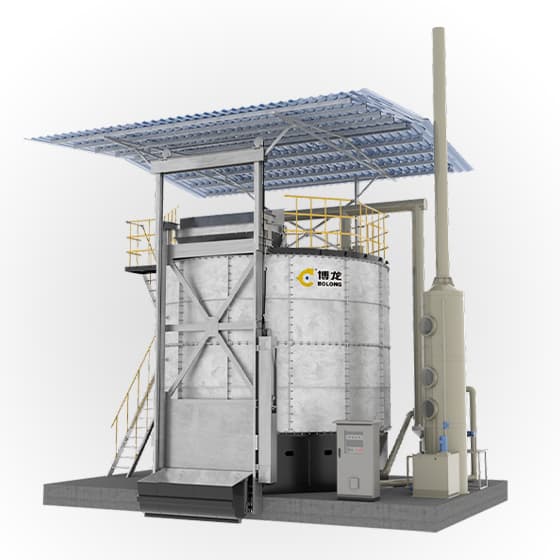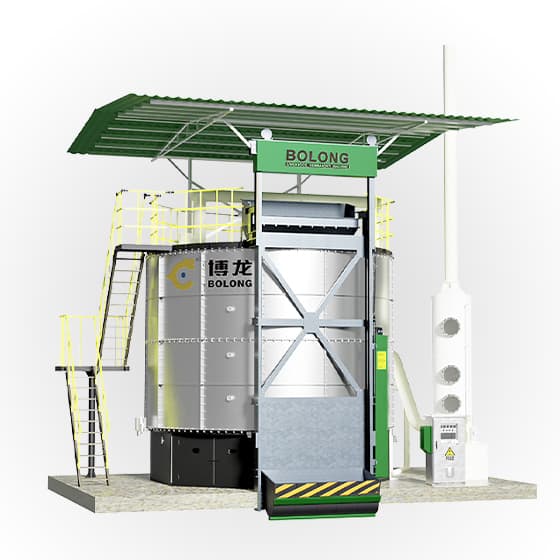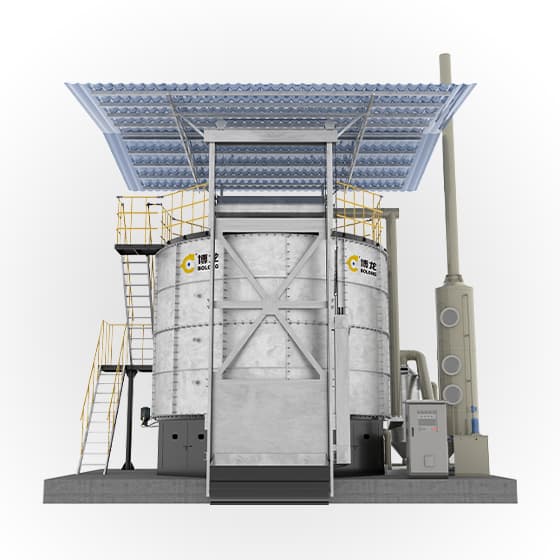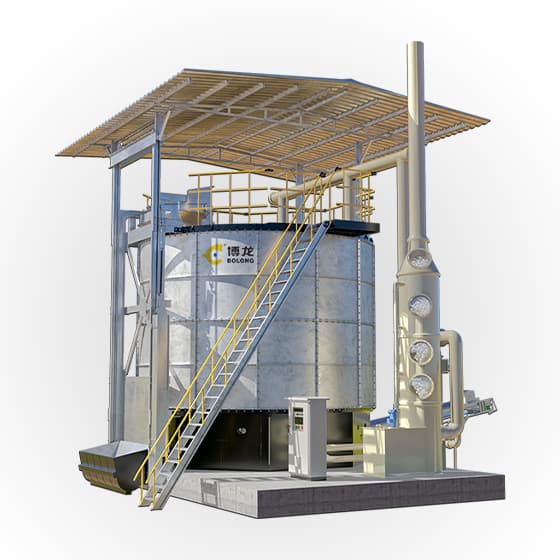A Technical Guide: Composting animal waste and agricultural
Benefit of Composting. Composting manure with biological products is the process of decomposing animal and plant waste into organic matter that is easier for plants to digest after just a few weeks or months. This process reduces odor, disease germs, helminth eggs, and harmful bacteria.
Waste Management and Composting - Center for Agriculture
Introduction Waste management is all about how to dispose of all the things you don't want on the farm. Composting is a sustainable waste management practice that converts any volume of accumulated organic waste into a usable product. When organic wastes are broken down by microorganisms in a heat-generating environment, waste volume is reduced, many harmful organisms are destroyed, and a
On-Farm Composting of Livestock Mortalities - Washington
How Does SSB 5602 Affect On-Farm Composting? SSB 5602 exempts bovine and equine livestock producers from the solid waste permitting and metals testing requirements when compost is distributed off-site in bulk provided that
A systematic review of biochar use in animal waste composting
Apr 1, 2019 · Accordingly, the purpose of this review is to critically analyze the role of biochar in livestock and poultry waste composting, identify gaps in our current knowledge, and propose future research directions. On the basis of the studies analyzed, biochar has the potential to improve animal waste composting processes at application rates of 5–10%.
Composting - USDA
You can start a backyard composting bin or use worms to do the work. Backyard composting in three easy steps: Choose a location. A good site is dry in either the sun or partial shade. Set-up your compost bin. Purchase a compost bin or create an inexpensive bin with wire mesh and 3-4 poles for support. Get composting.
Omnivore Animal Composting | Innovative Poultry Products
The Omnivore Composter, an In tank, tubular composter, helps you manage your on-farm composting. It is designed to operate efficiently and consistently. The composter increases biosecurity, reduces odors and pathogens, and helps you maintain a clean and neighbor-friendly operation.
Aerobic co-composting of mature compost with cattle manure
Aug 1, 2023 · Current treatment for livestock manure include aerobic composting, anaerobic fermentation, and the production of solid biofuels (Mardoyan & Braun, 2015).Compared to anaerobic fermentation and the preparation of solid biofuels, the aerobic composting process has low energy consumption, low odor generation, and produces organic fertilizer products with some added value that are harmless
Livestock Waste Management | KDHE, KS - Kansas.gov
The Bureau of Field Service's Livestock Waste Management team protects the waters of the state of Kansas by educating and assisting the regulated community, reviewing and issuing Livestock Waste Management Permits, and ensuring compliance with applicable statutes, regulations, and permitting requirements.
A review of the definition, influencing factors, and
Feb 1, 2024 · However, conventional composting often require a treatment cycle of 1–2 months or longer (Lin et al., 2018).The composting process involves four stages: heating, high temperature, cooling, and maturation, which convert organic waste into mineralized products and stable organic matter (mainly humus) (Qian et al., 2014) through the action of microorganisms.
How to Compost Dog Poop: The Ultimate Guide to Eco-Friendly
Aug 16, 2024 · Choose an Animal Waste Compost Bin. Dog owners must select a separate bin for dog waste, away from edible plants and fruit trees or water sources, to prevent contamination. Choosing the right bin is essential for successful composting. Here are some factors to consider when selecting an animal waste composting bin:
Composting Mortalities - Livestock
On-farm composting is an approved method to dispose of livestock mortalities. Advantages include increased biosecurity, timely disposal of mortalities, low risk of environmental contamination, low cost, and relatively simple to do.
Cornell Waste Management Institute - Government of New York
Composting Animal Mortalities 2014 Cornell Waste Management Institute Mort leave this text box:(.. Table of Contents . 1 Introduction 3 2 Mortality Composting -- Not Your Typical Compost .....5 2.1 Overview 5
Livestock waste for compost production (ProBio/Viohache Mexico)
Waste input type: Agro-waste (livestock waste) Value offer: Organic fertilizer – compost and nutrient-rich liquid fertilizer from processed leachate Organization type: Private Status of organization: Operational since 2003 Scale of businesses: Large-scale processing 420,000 tons of animal waste per annum Major partners: SuKarne Executive summary
Livestock Mortality Composting - SARE
Many livestock producers are concerned about proper mortality disposal and management. Proper management of animal mortalities on the farm/ranch/feedlot has important implications for nutrient management, herd and flock health, as well as farm/ranch family and public health.
Composting Animal Waste - Organic Fertilizer Plants
Furthermore, animal manure compost is more convenient for transportation, storage and application. In a word, composting animal waste is an efficient way to deal with animal manure. SEEC provides professional for composting animal waste. Composting animal waste can convert organic matters into absorbable nutrients. How to compost animal
-

For fermentation of animal manure into organic fertilizer
Manure Fertilizer Fermentation Tank -11FFG-280 -

For fermentation of animal manure into organic fertilizer
Manure Fertilizer Fermentation Tank -11FFG-160 -

For fermentation of animal manure into organic fertilizer
Manure Fertilizer Fermentation Tank -11FFG-90 -

For fermentation of animal manure into organic fertilizer
Manure Fertilizer Fermentation Tank -11FFG-102